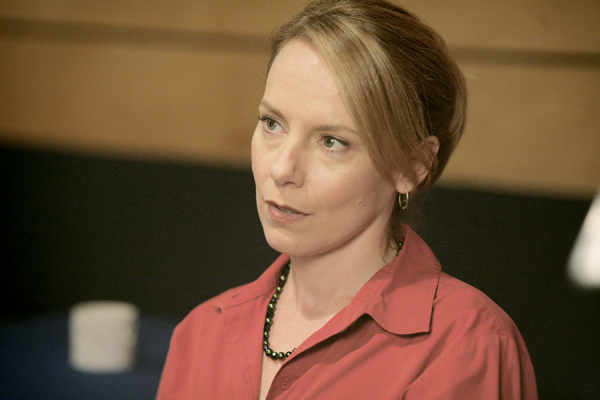|
Reviews of Recent Independent, Foreign, & Documentary Films in Theaters and DVD/Home Video

THE MISSING PERSON When we first see Michael Shannon, as private investigator John Rosow, in his dingy Chicago apartment, he’s just awake and craggy. Soon comes the booze, first in his morning coffee; on the train ride to Los Angeles on a well-paid assignment to track down a missing man, Harold Fullmer; and then a little more when he gets into town. One wonders if he can even follow this case, or if he’ll be buried in a bottle. As it turns out, in The Missing Person appearances are deceptive, and his search for the man carries far more existential weight than Rosow first imagined. As it turns out, Fullmer, whom Rosow first figures out is a cheating husband, has been one of the many never found from the devastation of 9/11. This strikes a chord for the detective, not simply because he’s bothered by Fullmer’s flight from his wife, but because Rosow was a cop in New York during that time, and, we’re told in so many words, his wife perished in the attacks. Director Noah Buschel means for his neo-noir to emulate the private eye mystery genre, of the sleuthing shamus full of liquor, but he’s also emulating another part of the lineage of late 1940’s film noirs, the post-war malaise. In this case, Buschel uses post-9/11 depression as the backdrop, and the film is at its best creating an atmosphere of muted colors and tight compositions and melancholy to go along with Rosow’s own inner-crisis. The Missing Person isn’t a muddle, nor is it any great triumph. Its story coasts along for a lot of the running time, perhaps intentionally, as Rosow stumbles around drunk and happens to find his way through the case (much like a Raymond Chandler character). One scene, in particular, with Rosow and a prostitute is watchable mostly for Shannon’s performance, and not so much the lackadaisical direction. Indeed, Buschel doesn’t get a real plot moving along until Rosow finds Fullmer in Mexico and gets him back to New York and the real drama of will-he-or-won’t-he return-to-his-wife unfolds. The
film would probably work best as a rental. At home, one can be fine with
the lax pace, the idiosyncratic moments, like Rosow’s snow-filled dream
in a movie theater; and, most importantly, one can appreciate Shannon’s
performance. It’s really his show, and he crafts a character like we
haven’t seen yet from him—prior to this it’s been crazies or oddballs in
the likes of Bug and Revolutionary Road—playing a
protagonist with one dark side and one darker side. While most of
Buschel’s script is obvious in its homage, Shannon does a subtle twist
on the private eye stereotype, a sad wanderer in the guise of a badass.
Jack Gattanella
|

